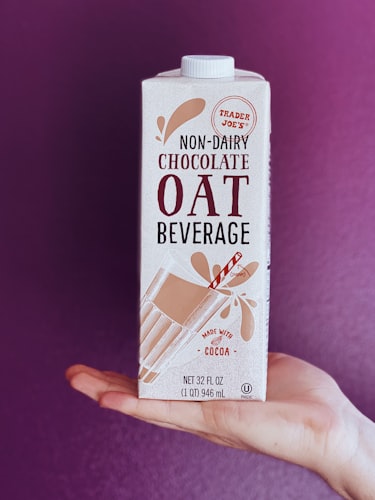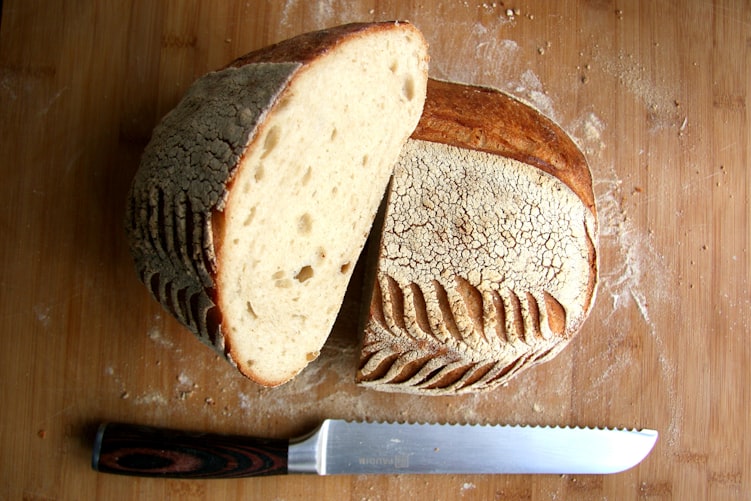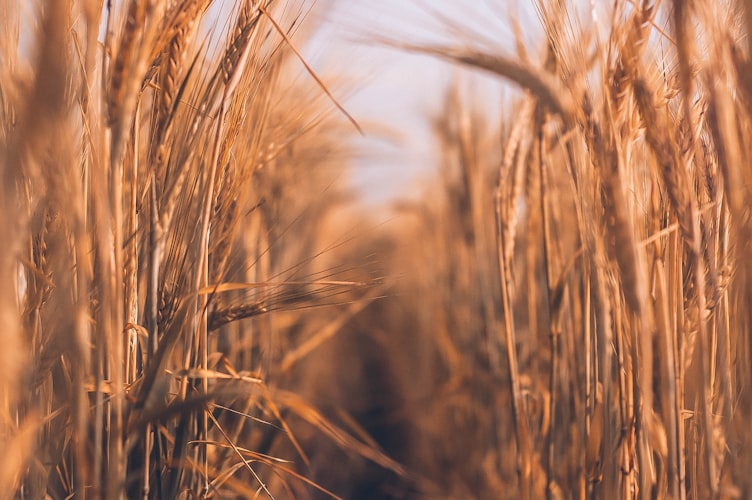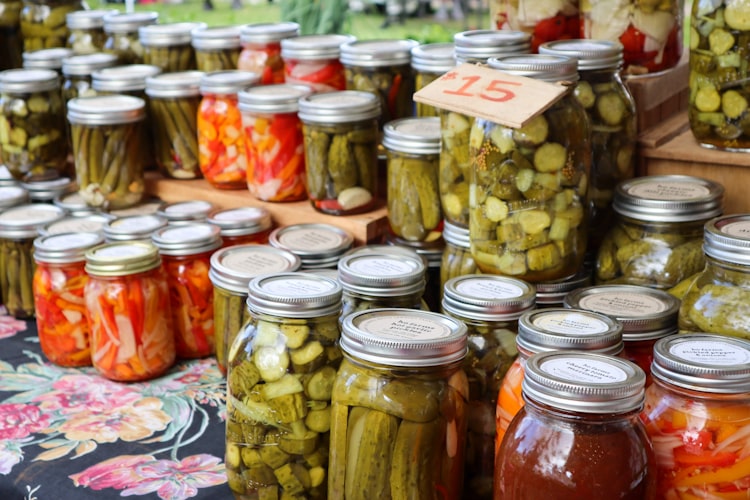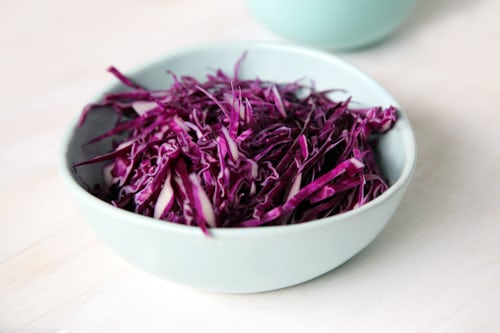
A plant-based diet is considered one of the healthiest lifestyle choices one can make. That being the case, when on a vegan diet, you have to ensure that your body is getting the right types of nutrients and that you are consuming a well-balanced diet with sufficient plant-based nutrients. Probiotics are the beneficial bacteria that live in the body and are known as good bacteria. They perform a host of tasks and work to keep the whole body at optimum levels of health. Probiotics for vegans can be found through certain plant-based foods and various supplements. We’ll discuss some of the more popular choices for probiotics in a vegan diet and try to understand the various health benefits probiotics brings with them.
Yoghurt is considered one of the most popular sources on a normal diet. However, a plant-based diet doesn’t include dairy hence, normal yoghurt would have to be supplemented by a plant-based alternative. Plant-based yoghurts are an excellent source of probiotics. Most plant-based yoghurts made from almonds, soy, coconuts, peas or cashews include active cultures which are probiotics. These probiotics are known as beneficial gut bacteria which help support healthy digestion.
Prior to understanding the various sources of probiotics for vegans, let’s first try to understand why probiotics are so important. First and foremost, probiotics help balance the good bacteria in your digestive tract. Bad bacteria in your digestive tract can lead to a host of issues including obesity, allergies and digestive issues. Bad bacteria can result in the ineffective absorption of nutrients and the ineffective digestion of food in your body.
Further to helping the digestive tract, probiotics are an important element of mental health and a healthy heart. Certain lactic acids producing bacteria can help reduce cholesterol. A study including probiotics conducted over six months proved a small increase in HDL, which is better known as good cholesterol. This goes to imply that probiotics help lower LDL which is bad cholesterol and improve levels of HDL.
With a host of added benefits such as improved immune function and the ability to assist weight loss, probiotics are obviously an integral component of a healthy balanced diet; something that should not be overlooked.
Hence, let’s dive a little deeper and list out the best plant-based sources of probiotics for vegans, so we can all ensure that we maintain a good amount of probiotics in our systems.
1. Fortified Dairy Alternatives
As mentioned earlier, though dairy-based yoghurt is not a part of the vegan diet, there are various plant-based alternatives that serve the purpose. Fermented dairy alternatives which are made from soy and nuts include various kinds of plant-based milk and yoghurts that you can choose from. Most of these fortified dairy alternatives contain live cultures as mentioned prior.
Though this good bacteria is actually added separately by the manufacturer, they work to help boost the various health benefits observed by the consumer. This includes the various health benefits of probiotics that we mentioned earlier.
If you are uncertain as to whether your fortified dairy alternative contains probiotics, check the label on the product for Lactobacillus or other probiotic strains.
2. Miso
This soup is rich in antioxidants and B vitamins and brings with it a host of beneficial bacteria. Hence if you are on a plant-based diet, Miso can be a great addition to attain the necessary probiotics for vegans.
Miso can be consumed as a soup or added to various other meals as a paste. Miso paste works really well as a salad dressing. You can also use the miso paste to make your favourite stir fry or marinades.
When making Miso soup, however, you have to ensure to use warm water as opposed to hot water, because the excessive heat can actually work against you by killing the probiotic bacteria.
3. Sourdough Bread
Traditionally, sourdough bread is made using a sourdough starter which includes a combination of water and flour that had been left to ferment for several days prior to making the bread. It is the fermentation process that enables the growth of good bacteria in the dough, resulting in a probiotic-rich meal.
If you are making sourdough bread at home, you can regularly feed the starter with more flour and allow it to ferment which provides you with a stock of sourdough that you can make into bread.
When you consider sourdough bread as a source of probiotics for vegans, you have to ensure that the sourdough bread is made using a starter culture. Otherwise, the sourdough bread simply won’t have the probiotic content. Hence when you are buying from stores, make sure to check the ingredients, especially if you are after probiotic value.
4. Tempeh
Tempeh is another secret goodie in the vegan arsenal and is very similar to tofu. The difference between tempeh and tofu is that, the making of tempeh involves a fermentation process of the soybeans. It is the fermentation process that is responsible for the growth of the beneficial bacteria in tempeh.
Tempeh is thus a rich source of probiotics and offers a reliable source of vegan protein too. Tempeh is versatile and can be used in a host of dishes.
Popularly, tempeh is used by vegans in salads or stir-fried into a dish of its own. Sandwiches and burgers are also another great way to enjoy tempeh.
5. Water Kefir
Water kefir is a probiotic beverage that is made using a starter culture of bacteria and yeast. The starter culture is composed of water kefir grains.
Vegans can simply mix the water kefir grains with either water, juice or coconut water to form a healthy beverage loaded with probiotics. The drinks are usually mild-flavoured depending on what you use to mix with the water kefir.
You can mix the water kefir with your plant-based milk for added benefit. These grains with sufficient care grows regularly and survive for years.
6. Kombucha
This is a fermented tea that has grown in popularity over the recent years. Kombucha is brewed using a starter, SCOBY; symbiotic culture of bacteria and yeast.
Though the starter on its own does not look very appetising, it is loaded with beneficial microorganisms which are sure to benefit you. You should be able to find the SCOBY starters at various health-food stores. If you are lucky, your local coffee shop may simply be serving ready-brewed kombucha. Some supermarkets have them available for purchase too.
Kombucha contains alcohol and the level of alcohol depends on the brew itself. Usually in low levels, some version of kombucha can contain enough alcohol to be considered a beer. Hence, it is not advisable for those who are pregnant or breastfeeding.
7. Pickled Vegetables
Pickled vegetables can be a yummy treat or a side dish for any vegan. The fermentation process involved in the pickling of vegetables makes picked vegetables an excellent source of probiotics.
Though you can basically pickle any vegetable, some of the more popular vegetables to pickle include cucumbers, carrots, cauliflower, radishes and red bell peppers. You can even add some herbs and spices into the mix for added flavour. Simply adding some garlic into the pickle or coriander seeds will spice up the dish and make it even tastier.
As a word of warning however, fermented vegetables contain a lot of sodium. This can associate heavy consumers of pickled vegetables with a high-salt diet that can lead to high blood pressure and water retention. Hence, as a word of warning, pickled vegetables should be enjoyed in moderation.
8. Kimchi
This spicy and fermented cabbage dish is popular in the Korean cuisine where it originates from. The fermentation process involved in the making of kimchi makes it an excellent source of probiotics. Further to this, kimchi is also a great source of other vitamins and antioxidants.
Kimchi isn’t hard to make. In fact, you could make it at home quite easily. Click here.
The making of kimchi uses certain other vegetables and spices. Flavours can vary based on what you choose to incorporate into your kimchi. However, if you are eating out, when ordering kimchi, be sure to check first, for it may include seafood. You can also find kimchi in health-food stores where you can find them packed up in jars.
9. Sauerkraut
Like kimchi, Sauwekraut is a type of fermented cabbage, however is popular in parts of Eastern Europe. The making of sauerkraut also includes a fermentation process, which makes it a brilliant source of probiotics.
Further to the rich content of probiotics, sauerkraut is a great source of potassium and vitamins C and K.
Sauerkrat is really easy to make. All you have to do is simply cut up the cabbage into fine strips and ferment it in brine, which is a highly concentrated saltwater solution. The Lactobacillus bacteria found in cabbage when in brine solution works to convert the sugars in the cabbage into lactic acid. This is what brings about the sour taste of sauerkraut, which works really well in sandwiches and salads.
When picking sauerkraut in the supermarket or in the health stores, be sure to check if the product is pasteurised or unpasteurised. Pasteurisation destroys most of the beneficial bacteria in the dish, hence it is important to pick the unpasteurised version.
10. Olives
Olives much like the pickled vegetables that were mentioned prior are usually preserved in a brine solution. Once again, it is the brine solution that is responsible for the richness of probiotics in olives.
The brine in which olives are preserved works towards the growth of good bacteria, which brings with it the host of health benefits of probiotics in your diet.
Olives can be a tasty addition to a meal. Many people simply like eating them on their own. They also work really well as a pizza topping or even in a salad.
11. Natto
Natto is yet another fermented soybean product like tempeh and miso. The main beneficial component of natto is the bacterial strain called Bacillus subtilis.
Found as a staple component of meals in Japan, natto is typically served with mixed rice and is sometimes even served with breakfast. Natto has a strong flavour and a distinctive smell. Along with a good component of probiotics, natto brings an ample amount of protein and vitamin K2.
Great for your bone and cardiovascular health, natto has some amazing health benefits and is an excellent source of probiotics for vegans.
12. Supplements
Though probiotics can be sourced quite well from the diet alone, when on a vegan diet, it may become difficult to ensure that you are getting the right amount of probiotics. Everyone simply doesn’t have the time to prepare the various types of food that we have covered in this article, hence some opt for the ease of supplements.
Supplements offer a great alternative for those who live a busy lifestyle and cannot award too much time preparing meals. When it comes to picking the right probiotic supplement, you have to ensure that you are picking something that is suitable for vegans. Not all probiotic supplements are vegan, hence be sure to check the label carefully.
When it comes to finding the right probiotic supplement, with probiotic supplements not regulated by the United States Food and Drug Administration (FDA), there is no sure way to tell if the products actually contain the strains of bacteria that the manufacturers claim they do. Hence, be sure to go with a trusted name from a reputable source.
Probiotics for Vegans
When you consider the value of probiotics in your diet, you know that you cannot go wrong in including a good amount of probiotic sources in your diet. With the various health benefits of probiotics in your diet, these vegan sources are sure to provide vegans with the clear direction that they require to ensure they are getting everything they need to stay healthy.
Though some of the sources are a little more complicated than others, it isn’t difficult to include fortified plant-based milk or yoghurt into your diet. If all things fail and you find yourself not getting the right amount of probiotics from your plant-based diet, you can always consider taking a supplement.
Regardless of how you choose to go about it, we hope we provided you with a reliable list of sources that is sure to provide a good starting point to ensure that you are getting the right amounts of probiotics in your vegan diet.
If you would like more information on probiotics and the health benefits of probiotics, we recommend that you read our article on, ‘Is Taking a Probiotic Good For You? Health Benefits of Probiotics.’
All in all, we hope you found this article useful and that you enjoyed reading this word to word.
Happy Munching!



